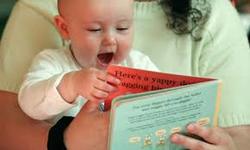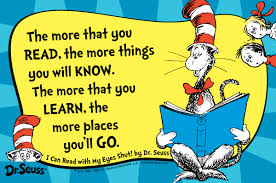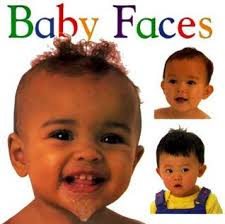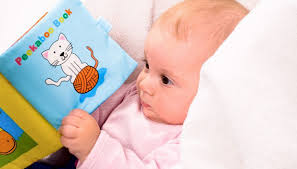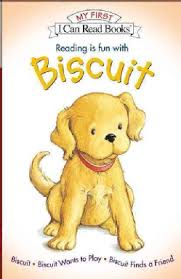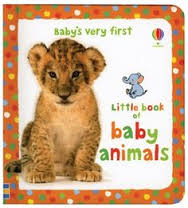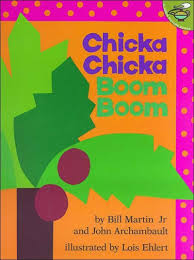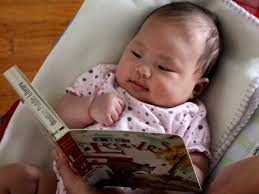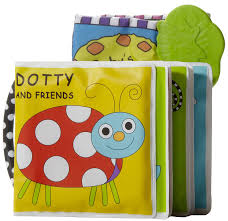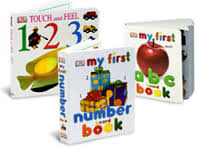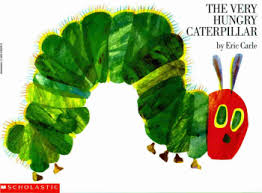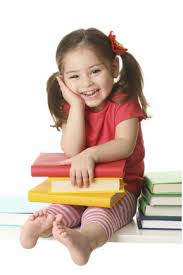The early years of a child's life are very important for their development. Parents, child care providers, health professionals, and other adults can work together to help children reach their full potential.
Assessment & Services
Project Find - Provides free developmental/educational assessment and services to Huron County residents from Kindergarten to 26 years of age. Call your local school or the Huron Learning Center at 989-269-9274 for more information.

Early On - Early intervention services for infants and toddlers, birth to three years of age, with developmental delays and/or disabilities. To be eligible for services a child must have an established medical condition that places the child at risk for a developmental delay or be 20% delayed for their age in any developmental area (gross motor, fine motor, cognitive, social emotional or adaptive). To schedule an Early On evaluation call 989-269-3484. Early On is part of the Michigan's public education services, there are no costs to families and services are not based on income or other financial qualifications.
Common Milestones
|
Milestone Moments: Center for Disease Control - Look inside this Child Development Guide for milestones to watch for in your child and how you can help your child learn and grow. How your child plays, learns, speaks, and acts offers important clues about your child's development. Developmental milestones are things most children can do by a certain age.
If you are unsure of what is typical for your child's age, use the links below for guidance.
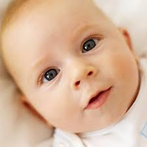
Infant Development (birth to 12 months)
0-3 months 4-7 months 8-12 months Communication skills for babies Physical Development Social/ Emotional Development Thinking Skills 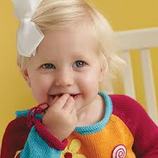
Toddler Development (1-3 years)
Milestones Potty training Communication skills for toddlers Physical Development Social/ Emotional Development Thinking Skills 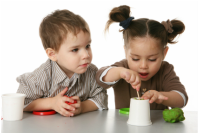
Preschooler Development (3-5 years)
Milestones Mealtimes and Nutrition Communication skills Physical Development Social/ Emotional Development Thinking Skills School Readiness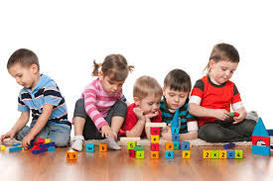
What is school readiness? At the end of a successful preschool experience, a typical child entering kindergarten has these kinds of skills:
- Takes care of own needs and asks for help when needed. Able to feed themselves, brush their teeth, comb hair, dress themselves, etc. - Can be away from parents and looks forward to going to school.
- Can hold a pencil, crayon or marker, and scissors to draw, write and cut. Can paste pictures on paper. - Able to build with blocks, form shapes out of clay or play dough, can thread beads on a string and complete simple puzzles.
- Asks and appropriately answers who, what, where, when and why questions. - In conversation, maintains eye contact and does not interrupt.
- Sorts objects by size (smaller, bigger, longer, shorter), by weight (heavier, lighter), by color, and by type (block, doll, ball, etc.). - Understands the order of daily routines, such as meal time routines (wash hands, eat meal, clean up).
- Recognizes and says simple rhymes (top, mop or fox, box). - Enjoys story time (holds book correctly, turns pages from front to back and knows that sentences are read from left to right) and recognizes stop signs, store signs and other print they see often. - Is able to write their name and draw pictures.
- Verbally counts to 20 and identifies 5 - 10 numbers by name. - Identifies names and describes shapes. - Can copy simple, repeating patterns and can make their own pattern. |
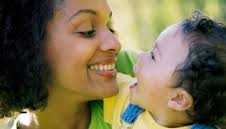
Did you know...
The development of speech and language skills is strongly linked to thinking ability, social relationships, reading and writing, and school success. Speech involves the use of specific sounds to create words. Language is the way we combine sounds, words, and sentences to communicate with and understand others. Each child is different and will develop speech and language skills at a different pace. It's important to note that bilingual children develop language skills just as other children do. General Communication Tips for Young ChildrenYou can use any of the following tips to help stimulate speech, language, and listening skills for children across the age range from birth to age 5 years.
Building Vocabulary:
Developing Listening Skills and Speech Sounds
Participating in Conversations:
- keeping the needs of the listener in mind when speaking - understanding facial expressions and gestures - staying on topic - knowing how to respond appropriately
- try not to put words into her mouth; instead, gently guide her when she seems unable to continue - help him stay on topic by extending his conversation and adding related information
Getting Ready for Reading and Writing:
|
|
What young children like in books:
colors. - Stiff cardboard, "chunky" books, or fold out books that can be propped up in the crib. - Cloth and soft vinyl books with simple pictures of people or familiar objects that can go in the bath or get washed.
- Brightly colored "chunky" board books to touch and taste! - Books with photos of familiar objects like balls and bottles. - Books with sturdy pages that can be propped up or spread out in the crib or on a blanket. - Plastic/vinyl books for bath time. - Washable cloth books to cuddle and mouth. - Small plastic photo albums of family and friends.
- Books with photos of children doing familiar things like sleeping or playing. - Goodnight books for bed time. - Books about saying hello and good-bye. - Books with only a few words on each page. - Books with simple rhymes or predictable text. - Animal books of all sizes and shapes.
- Simple rhyming books that they can memorize. - Bed time books. - Books about counting, the alphabet, shapes or sizes, - Animal books, vehicle books, books about playtime. - Books with their favorite TV characters inside. - Books about saying hello and good-bye. |
Ways to Share Books with Babies and Toddlers
|
Build Up - helps parents and their children, 3 through 5, get additional educational support, as they begin and continue to learn the skills needed to enter Kindergarten. Michigan's Early Childhood Special Education includes special instruction and related services provided to young children, ages 3 through 5, who qualify under the Individuals With Disability Act (IDEA, Part B, Section 619). For more information call 989-269-3408.
Well-Child Exam - your pediatrician or family doctor will look for developmental delays and talk with you about any concerns you might have about your child's health and development. If concerns are identified, an appointment should be made for a free, developmental evaluation at the Huron Intermediate School District. See the Huron County Family Resources Brochure for a list of local pediatricians and family doctors.
This website was developed under a grant awarded by the Michigan Department of Education.

